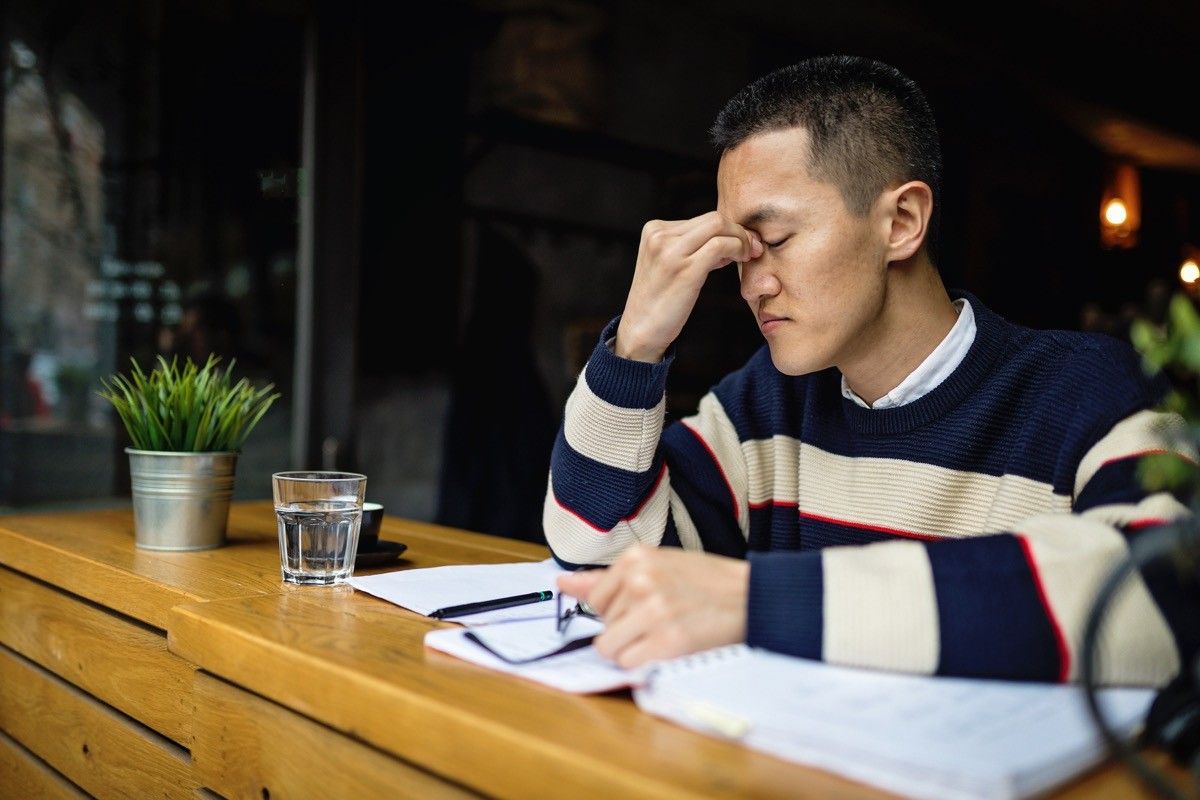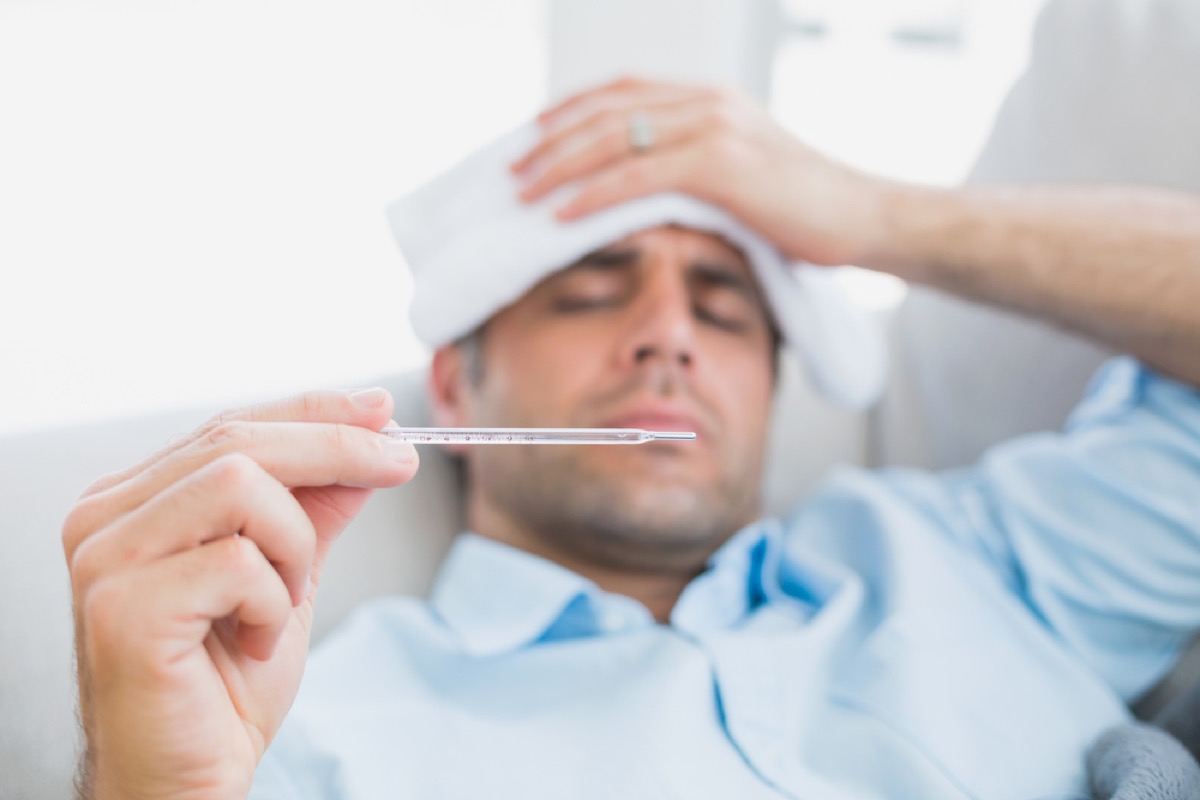Health experts are speaking out about their side effects in order to assure the public that much of what may seem like a negative or painful reaction to the COVID vaccine is normal; in fact, it’s just a sign your body is working to build immunity against the virus should you eventually come in contact with it. During a Jan. 28 interview with MSNBC, Fauci said, “The vaccine, because you’re giving it in the arm, it gives a systemic reaction. You know that because sometimes after the second dose you feel a little achy, a little chilly, which means the immune system is really getting revved up.” As the CDC highlights, the two mRNA COVID vaccines currently approved in the U.S., from Pfizer and Moderna, do not inject recipients with inactivated virus as some vaccination processes do (for example, the hepatitis A and flu shot vaccines). Instead, they teach your cells to mimic certain features of the COVID virus so that your immune system can train to fight against it later, if you were to become infected. For the full details of Dr. Fauci’s experience, read on, and for more on the side effects that do signal something is amiss, check out If This Happens After Your Vaccine, the FDA Says You Should Call 911. In his Feb. 8 discussion with Prince George’s County doctors and officials, Fauci, who received the Moderna vaccine, said he had “the prototype experience” with the shot, meaning the most typical response. “After the first prime [shot], my arm hurt a little bit. If I pressed on it, I felt a little ache in the arm,” he recalled. “Went to bed at night, woke the next morning, it lasted maybe into the next day, but by the night time of the second day, it was gone.” According to data from Moderna’s clinical trials, which included 28,207 participants, pain at the injection site was indeed the most common side effect, with 92 percent of study subjects experiencing it. And for more vaccine news to be aware of, check out You’re More Likely to Have Vaccine Side Effects If You’ve Done This. Fauci found that things were a “little bit different with the boost,” referring to his second shot, which he received 28 days later, as is recommended with the Moderna vaccine. “Again, I had a little bit of an ache in the arm,” he said. “Maybe a little lower back, muscle ache that made me feel not 100 percent normal.” Again, Fauci’s experience aligns with what Moderna found with their clinical trials, where 61.5 percent of participants experienced myalgia, meaning muscle aches. And for more COVID news delivered right to your inbox, sign up for our daily newsletter. Fauci also recalled how following his second shot, “towards the evening, I started to feel a bit fatigued.” But, he assured, “it didn’t prevent me from coming to work. I did everything I do normally on a working day.” Then, he said, he “went to bed, woke up, [and felt] a little bit better the next day.“ae0fcc31ae342fd3a1346ebb1f342fcb Fatigue was another common side effect among vaccine recipients in the Moderna trial, with 70 percent of them reporting this side effect. And if you’re worried your sleepiness is due to the virus, check out This Is How to Tell If Your Fatigue Could Be COVID, Doctors Say. While the vaccine process can trigger some short-term side effects, Fauci’s experience, and that of many others, shows that these symptoms are your body’s way of responding to the mRNA vaccine in the way that it should. “We know clearly that you get some response after the primary, but the maximum response… after the boost, is around tenfold greater than what it is following the prime,” he said. “So you get a very good benefit from getting the boost.” Because the second shot gives you optimum protection, side effects can be stronger post-dose 2. Moderna specifically noted that in their clinical trial, “Grade 3” side effects—like swelling, pain, body aches, headache and fever—were more commonly reported after the second dose. “When you get that first dose, consider it a training dose. You’re training your body to recognize that this is a foreign invader and it looks like coronavirus,” Greg Poland, MD, of the Mayo Clinic told HealthDay. “Now what happens? You get a second dose, and your immune system is shouting through that megaphone to say, ‘OK, the foreign invader is here! It’s here! It’s here! Kill it!’” And for more advice on doses, check out why Dr. Fauci Says Don’t Do This After Your First COVID Shot. Fauci stressed that this reaction is completely normal, and expected to be short-lived. “By the following night, I was back to 100 percent normal. So for about 24 hours, you may be fatigued, you may have a little muscle ache,” he said of his experience with the second shot. “I did not get fever, but some people do.” Moderna warns that side effects could go on slightly longer than that. “Solicited local and systemic adverse reactions reported following administration of Moderna COVID‑19 Vaccine had a median duration of 2 to 3 days,” the company reports. ‘“In most cases, discomfort from fever or pain is normal,” the CDC notes. “Contact your doctor or healthcare provider … if your side effects are worrying you or do not seem to be going away after a few days.” And for more on the only signs that mean you shouldn’t get your second dose, check out If You Have These Vaccine Side Effects, Don’t Get Another Shot, CDC Says.

